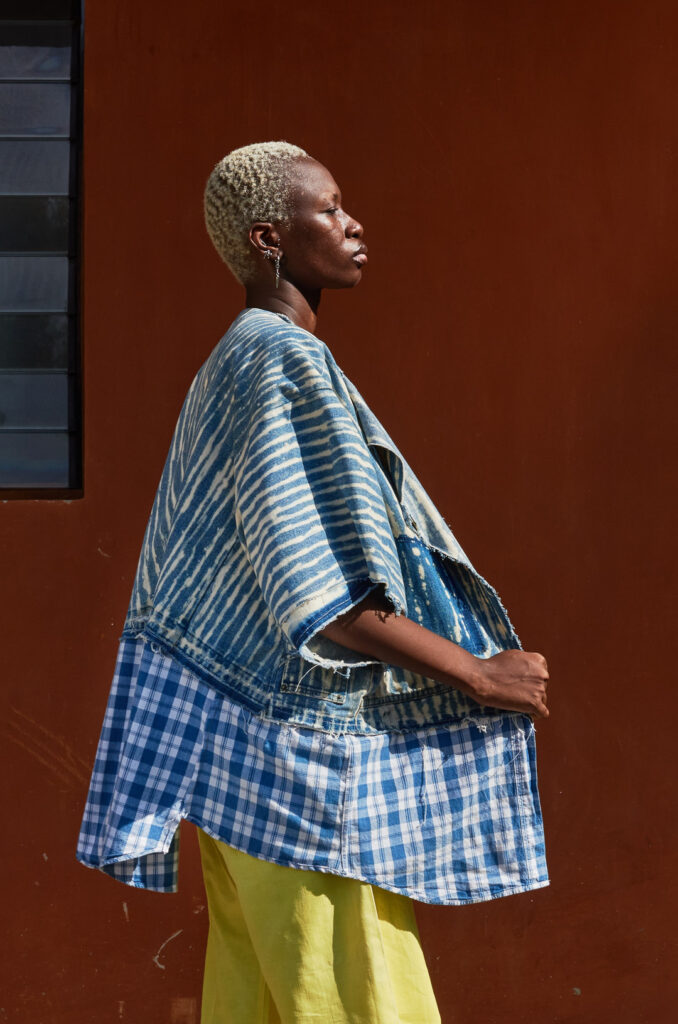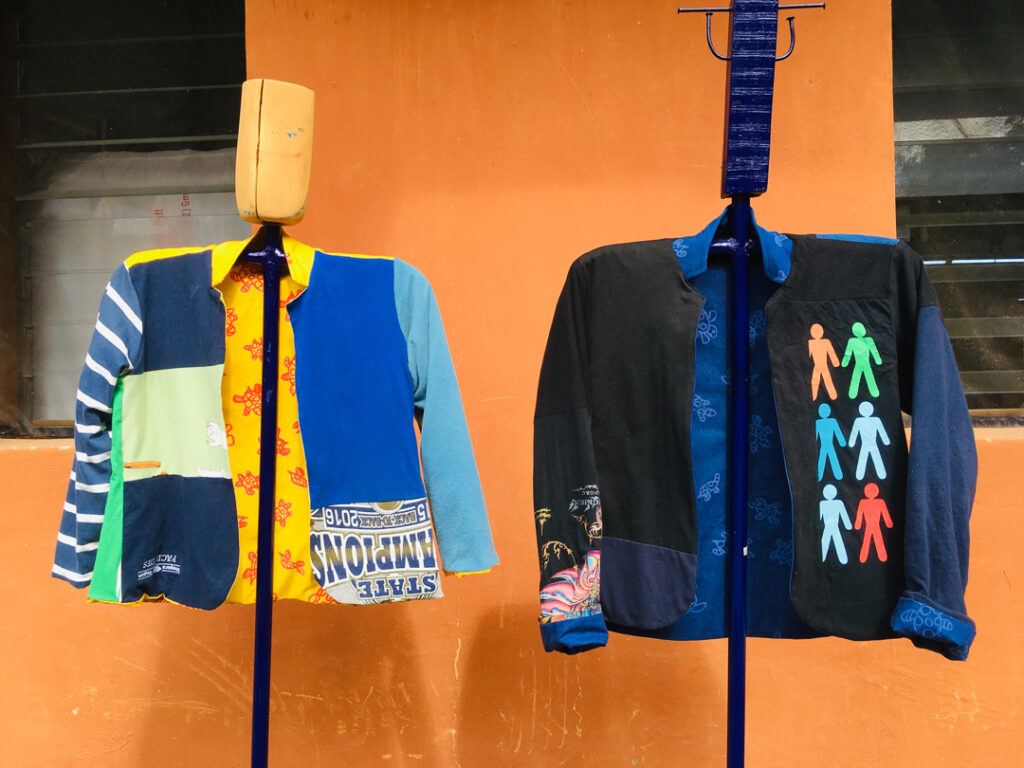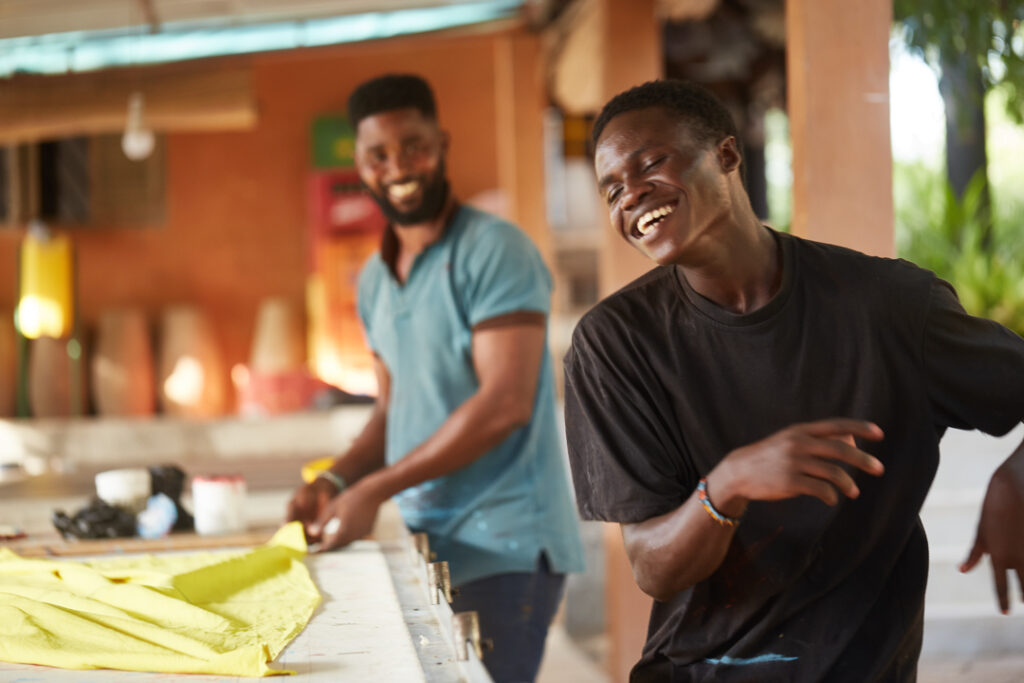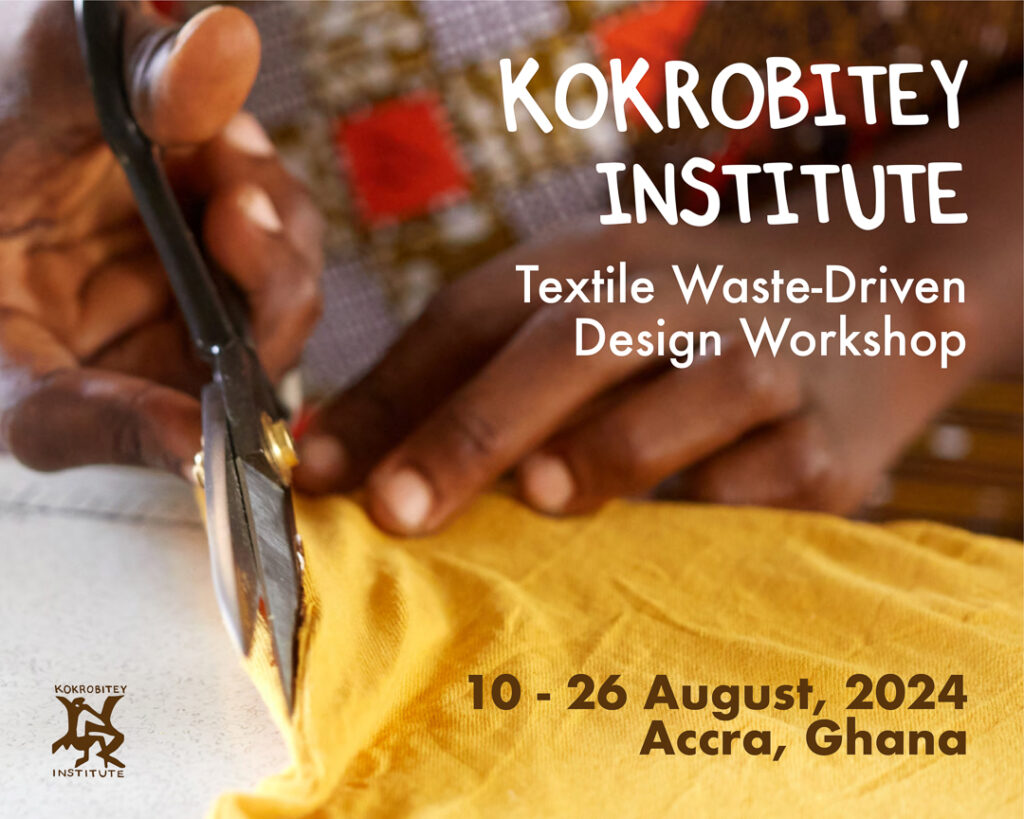Renée C. Neblett reflects on the idyllic village life she found in Ghana, how it lost its way with commercialisation, and the institute she founded to help recover its vitality.
(A message to the reader.)
Our mission at the Kokrobitey Institute is to support development in Ghana by facilitating projects and programs that demonstrate the intersections between, education, culture, resourceful design, health, environmental sustainability and social entrepreneurship. We work with organizations, individuals, and service agencies to explore creative solutions. Our ongoing education and development projects are supported by the creative work of the design center. Our goal in orbit with our local and international partners in Education, Art, Design IT, and Agroforestry, is to build, model and promote sustainable development practices.
The Institute, since its inception, has built upon the visionary work of the late Ghanaian architect Alero Olympio. Her work is rooted in the social and material intelligence of traditional Ghanaian cultures.
My personal journey to Ghana began during my tenure as an “artist in residence” at a private New England prep school in the 80’s where I organized an art-based study/travel course to Ghana. The purpose was to expand the perimeters of the world thought worth learning about, as well as to expose Africa as an “Old World” to the Americas, and part of all Americans’ shared cultural heritage. The impact of that experience had larger implications than I anticipated. It not only set me on the path of creating Kokrobitey but also gave me insight into a way of being I had yet to experience. The journey has allowed me to discover traditional knowledge systems and to understand their value in envisioning the future through the lens of environmental sustainability and for social well-being.
The first time I visited Kokrobite fishing village on the South Atlantic coast of Ghana over 30 years ago I was utterly stunned by the environment’s natural beauty. It was the most pristine, verdant landscape I had ever experienced in my life. It was literally a paradise. Though there was no electricity, no running water, no corner shop, and none of the amenities that I thought essential to navigating life on a daily basis, I found a fully functioning social community.
To my wonder, there were still, protected, crystal, clear sacred water holes.
To my wonder, there were still, protected, crystal, clear sacred water holes. People knew water was important. You could tell by how measured people were with using it. It was remarkable to observe how far a cup of water could go. In the morning everyone was up and about collecting what they needed for the day. The fishermen were at sea and the women gathered different plants. During those times, crabs were so plentiful on the shore that you literally had to dodge them. Kokrobite village was a self-contained community/economy: you buy my kenke (a local staple) I buy your fish.
Most importantly, everyone was conversant with their environment. People knew every shrub, leaf, and tree. They knew what the bark could do, the root, could do-the flower. I still remember the first time I fell ill with malaria. My driver took me to his mother’s village where she gave me a full-body neem steam. Or the first time I got a rash, and various herbs were mixed together, to great success. Or when I was given guava tea for an upset stomach. I can honestly say, that even though life was so different from anything I had ever known, I don’t ever remember thinking of the people as poor. This is not to imply I didn’t think things could evolve/develop. Rather, I thought these were some of the most intelligent people I had ever met.
I was completely overwhelmed by a body of knowledge I did not have. In retrospect, the experience completely transformed my understanding of what it means to be literate. I, believed like many do that literacy is in the domain of learning to read, write and comprehend the written and spoken word. It’s an important literacy, but not necessarily the primary one. I now know that primary literacy is the ability to read your environment to know what nature gives you and what you are obliged to give it in return.
To watch a small fully integrated functioning community morph into a market for other nations’ economies, to witness a community deluged with things it cannot afford replacing things people had at their disposal, from the neem and charcoal they used to clean their teeth, now packaged in tubes and shipped from thousands of miles away is an eye opener. So, when we talk about rediscovering African knowledge and traditions, we are not talking about the trappings of tradition, we are talking about the substance. We are talking about environmental literacy: the ability to respect the environment and those who inhabit it.
Few are aware of the ghastly magnitude of harm the textile waste from the fashion industry exacts on the environment. It is second only to that of oil. Kokrobitey has over the years developed several social entrepreneurship initiatives. One we are most proud of is Woté a sustainable fashion label inspired by Ghana’s traditional culture of resourcefulness, color and historically, modern aesthetics. The Woté collection uses recycled, second-hand clothes, other re-purposed materials, natural dyes and various printing techniques to create an upscale, comfortable collection of urban wear.
Each August we have an annual 16-day Textile Workshop. This year’s workshop/studio will be particularly dynamic because it will interface with the K.I design team and Bubu Ogisi, a renowned designer/researcher/artist collaborating on a sustainable fashion collection to be featured at Lagos Fashion Week in October 2024.
About Renée C. Neblett
 Renée C. Neblett, popularly known as Auntie Renée, is the founding director of the Kokrobitey Institute. Born in Boston, Massachusetts, she has lived in Ghana for over two decades. She studied at the University of Massachusetts, Montessori Education Practicum, Goddard College M.ED, Akademie Les Beaux Arts, Valence (exchange program), Kuenst Akademie Duesseldorf BA and MFA, and was a Bunting Fellow at Radcliffe College. She also served as a Visiting Scholar and Researcher at Project Zero Harvard University Graduate School of Education. The Kokrobitey Institute, a private research and development facility, was founded by Neblett in 1992 to expand the perimeters of American education to include study in Africa. The institute offers short-term and long-term residential programs that explore the linkages of Art and Design, Environmental Studies, History, and Culture for their role in advancing Education and Development. Current initiatives include manufacturing GSB, a school bag made of recycled materials, and the Maker’s Workshop. Visit www.kokrobiteyinstitute.org and follow @kokrobitey.institute.
Renée C. Neblett, popularly known as Auntie Renée, is the founding director of the Kokrobitey Institute. Born in Boston, Massachusetts, she has lived in Ghana for over two decades. She studied at the University of Massachusetts, Montessori Education Practicum, Goddard College M.ED, Akademie Les Beaux Arts, Valence (exchange program), Kuenst Akademie Duesseldorf BA and MFA, and was a Bunting Fellow at Radcliffe College. She also served as a Visiting Scholar and Researcher at Project Zero Harvard University Graduate School of Education. The Kokrobitey Institute, a private research and development facility, was founded by Neblett in 1992 to expand the perimeters of American education to include study in Africa. The institute offers short-term and long-term residential programs that explore the linkages of Art and Design, Environmental Studies, History, and Culture for their role in advancing Education and Development. Current initiatives include manufacturing GSB, a school bag made of recycled materials, and the Maker’s Workshop. Visit www.kokrobiteyinstitute.org and follow @kokrobitey.institute.











